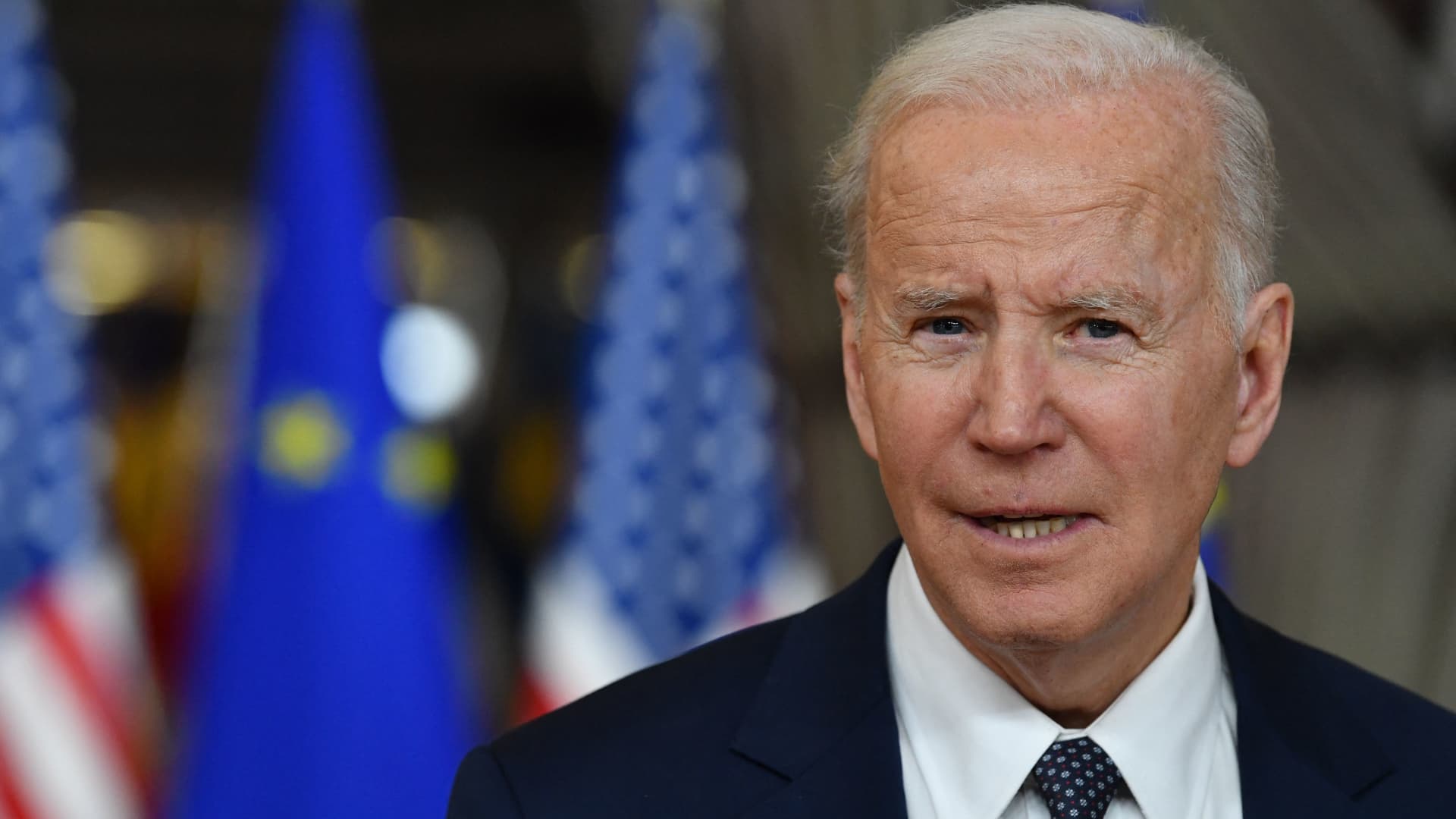
President Joe Biden is expected to propose a new minimum tax that would largely target billionaires when he unveils his 2023 budget, according to a document obtained by CNBC.
Called the “Billionaire Minimum Income Tax,” it would assess a 20% minimum tax rate on U.S. households worth more than $100 million. Over half the revenue could come from those worth more than $1 billion.
“This minimum tax would make sure that the wealthiest Americans no longer pay a tax rate lower than teachers and firefighters,” the document said.
The proposed levy is expected to reduce the deficit by about $360 billion in the next decade, according to the document.
If a wealthy household is already paying 20% on their full income, they won’t pay an additional tax under the proposal. If they pay less than 20%, they’ll owe a “top-up payment” to meet the new minimum.
“As a result, this new minimum tax will eliminate the ability for the unrealized income of ultra-high-net-worth households to go untaxed for decades or generations,” the document stated.
The new tax proposal is part of Biden’s 2023 budget expected to be released on Monday. His new spending plan would trim $1.3 trillion from the deficit over the next decade, according to a fact sheet released from the White House on Saturday.
What remains to be seen is whether Congress will move forward on Biden’s proposal. Last year, Senate Democrats unveiled a billionaires’ tax, which would have levied the unrealized capital gains of the wealthiest Americans. The measure ultimately did not proceed.
In fiscal year 2021, the federal deficit totaled nearly $2.8 trillion — about $360 billion less than in 2020, according to the Congressional Budget Office.
The swift economic recovery after pandemic lows is also a factor in lowering the deficit. The White House credited the American Rescue Plan, crafted to support relief to struggling Americans during the Covid crisis, for helping the economy grow 5.7% in 2021.
Not only will less economic and pandemic support be needed for people and businesses, but a stronger economy means higher incomes for households and businesses. Because of this, the government is projected to collect more than $300 billion in additional revenues compared to last year, the fact sheet stated.




